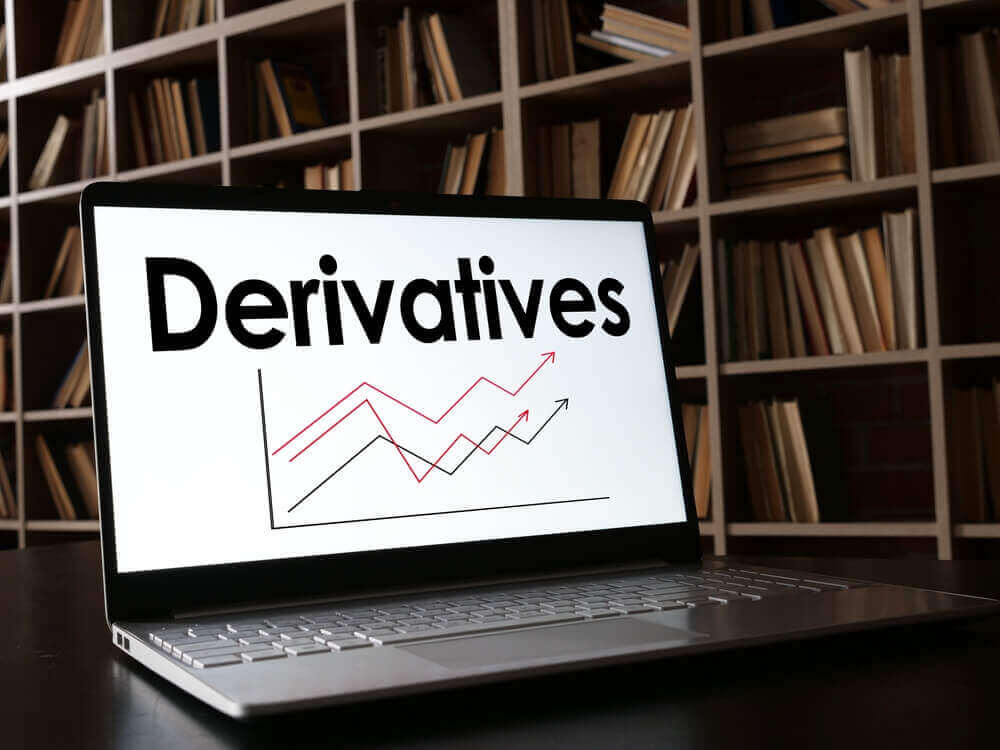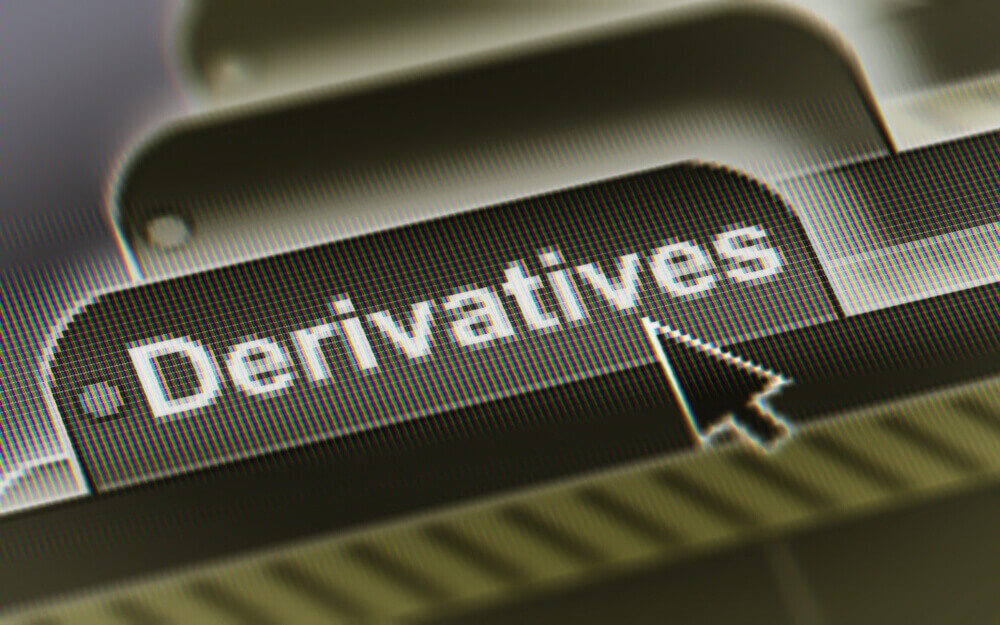Derivatives are financial instruments that derive their value from one or more underlying assets they represent. It is due to that ability that experienced traders often use them to minimize risk.
In derivatives, the underlying assets can range from currencies, stocks, bonds, commodities, interest rates, indexes, or cryptocurrencies. As a financial instrument, the value of derivatives depends on market conditions like credit, equity, and interest rates.
Derivatives Explained
Derivatives are mainly financial contracts between two parties that state the conditions for addressing future changes in the underlying asset’s value.
With these contracts, investors do not actually own the underlying assets. Instead, what they are doing is simply making a bet on whether the contract’s value will climb or decline.
Derivatives can be traded over-the-counter (OTC) or on exchanges like the Chicago Mercantile Exchange Group (CME Group). Exchange-traded derivatives are safer than OTC derivatives as they are regulated.
OTC derivatives are unregulated, and while they can deliver more returns than the exchange-traded ones, there is the risk of one party defaulting on the contract. Moreover, OTC derivatives have been known for causing the Great Recession by creating robust demand for assets such as mortgages.
Types of Derivatives
Forward
A forward contract is a private contract between two parties that are usually set up OTC. That means it is unregulated and has the risk of default.
While this type of derivative is risky, a forward contract provides more room for revising conditions, costs, and settlement options, which could help raise profits.
Futures
A futures contract is an agreement where the two parties will buy and sell an asset at a predetermined price on a future date. This contract allows the parties to secure a rate good enough for both of them based on the current information they have.
Futures contracts are also standardized, exchange-traded investments that investors can purchase with no trouble and counterparty risk. The profits and losses are settled daily with futures, helping traders speculate quickly on short-term price movements.
Options
Options also involve two parties agreeing to buy and sell an asset at a set price and time, although the buyer is not required to use it. That results in options requiring investors to pay for a premium representing a piece of the contract’s value.
Options are traded OTC or on exchanges, where they are verified by clearinghouses and regulated by the Securities and Exchange Commission (SEC), which reduces the risk for default.
On the other hand, OTC options are similar to forwards. They are also private contracts that can be customized and are riskier than exchange-traded options.
Swaps
Swaps are derivatives in which the two parties can exchange cash flows to cut costs or generate profits. The asset to be exchanged will determine how the swap will take place.
The risk of one party defaulting on the contract is high with swaps. This type of contract is not commonly available to individual investors. Instead, it is only available OTC to financial institutions and firms.
Advantages of Derivatives

Hedge Against Potential Losses
If traders are worried about where an asset’s value will go, they can use derivative contracts as a way of protecting themselves from potential losses.
A Speculative Tool
If the investor expects a drastic change in an asset’s value, he can use a derivative to bet on its potential gains or losses.
Efficient Use of Investment Money
Many derivatives are driven by margin, which could allow traders to buy them with a relatively small amount of their money.
That is excellent for investors looking to allocate their money across different investments to magnify returns without putting a lot in one place. It may also deliver more returns than what they could generate with their money alone.
However, taking such an approach could expose them to more considerable risks if they bet wrong with a derivatives contract.
Disadvantages of Derivatives
Counterparty Risk
With derivatives, the odds are high that the other party will default on the contract, especially when it is traded OTC. Derivatives have no intrinsic value, meaning they are only worth the credibility of the person or companies who agreed to them.
Subject to Change
The value of derivatives between two parties will fluctuate based on how the market price of the asset moves between now and when the parties change hands. If the asset’s price is expected to go up, the underlying asset’s value will go up as well.
Moreover, derivatives that require honoring specific prices can either lead to profit or losses. If the person entered futures, forward, or swap contract, he may be obligated to incur huge losses that may be increased by the margin he accepted.
Complexity
Derivatives can be a risky investment for beginner and even intermediate investors.
Investing in derivatives like options and futures can be more complicated than expected, as those contracts can require traders to buy or sell assets at a predetermined price and date, regardless of their value when the contract comes due.
Entering such a contract requires a certain level of industry knowledge and active management that may not work for investors who prefer a more hands-off, buy-and-hold approach.
How to Start Investing in Derivatives
Traders looking to invest in derivatives for the first time can do so by buying fund-based derivative products through the usual investment accounts.
Leveraged mutual funds and exchange-traded funds (ETFs) can use options or futures to raise returns, while inverse funds use derivatives to help investors turn a profit when the main market or index falls.
In addition, mutual fund managers often use derivatives to enable them to invest money fully and immediately.
There are also some brokerages that offer derivatives trading on their platform, which allows individual investors seeking more direct exposure to the instrument to place options and futures trades.
All that said, conducting proper research is important. It is essential to learn how fund managers use derivatives in their investment process, how they manage risks associated with investing in derivatives, and how much of the fund is involved in derivative exposure.











